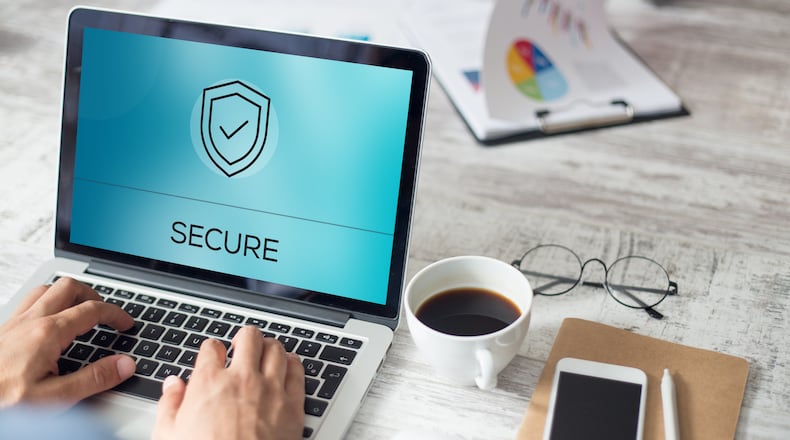If you completely lost all your stuff on your computers and mobiles devices, is that a problem? You don’t have to worry about stuff already stored in the cloud or on a website, but think about old photos, documents, spreadsheets, contacts and other data that’s stored just on your device.
If losing everything on the device isn’t a problem, maybe you really don’t need to backup. But if it would be a problem or headache, then you should have some sort of backup.
Setting up a local backup for your computer
One way to back up your files is to buy an external hard drive, or a USB flash drive that offers enough storage space. You can then use the features built into Windows, the hard drive, or other backup software to automatically copy your personal files or entire computer onto the external hard drive every so often, maybe once per week, per day, or with every file change. If you’re using Windows 10 or 11, you enable File History to automate the backup.
When using automated backup features like File History, it by default backs up the typical user folders, like Documents, Pictures, and Downloads. But if you store files directly on the C drive or have special software that stores data in another spot, ensure you add those locations to the backups.
Sometimes users manually create backups every so often to external or flash drive instead of keeping it connected with automated backups. This manual method might be acceptable if you don’t change or update your data on the computer very often. Just ensure you backup enough to catch any big changes you wouldn’t want to lose if something happens to your computer.
Setting up a cloud backup for your computer
Although backing up to a separate hard or flash drive — as just discussed — will keep them safe if your computer crashes, it may not provide protection against bad viruses, theft, or disasters. If you get a bad virus and the backup drive is plugged into the computer, the virus could also wipe out the backup drive. Or someone could break in and steal your computer and the backup drive, or a tornado or fire could destroy everything. For protection against these situations, consider backing up online to the cloud.
Microsoft pushes their cloud storage, syncing, and backup feature (called OneDrive) to users, but it certainly has some issues. It does not backup everything and can cause issues for users. I suggest a third-party backup company called IDrive (www.idrive.com). Although it starts with a I, it’s not from Apple.
Backing up your web browser
The typical local and cloud backup features for computers are not able to backup one crucial piece: your web browser data, such as bookmarks/favorites and saved website passwords. However, all the modern browsers (Edge, Chrome, Firefox) allow you to easily sign-in to backup and sync most of the browser data. This also makes it easy to sync the data between computers and even your mobile devices.
Backing up your mobile devices
If you have stuff on your mobile devices (like contacts, photos, and text messages) you don’t want to lose if your device becomes lost, stolen, or damaged, then you need some type of backup for them too. All the modern smartphone and tablets these days have some sort of cloud-based backup feature. I recommend using it, or the IDrive backup solution I recommend also supports backing up your mobile devices.
Eric Geier is the owner of On Spot Techs, a computer repair and IT services company offering on-site service at homes and businesses in the Dayton and Springfield areas and also a storefront at 4732 S. Dixie Dr. in Moraine. For more information, visit www.onspottechs.com or call 937-315-0286.
About the Author
